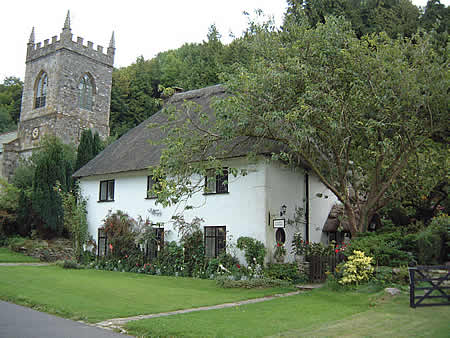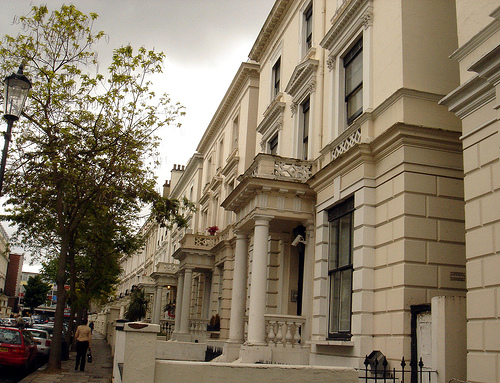166: Capital Gains Tax Change in UK - winners and losers
10-13-2007
PropertyInvesting.net team
So what do the tax changes that were announced by Alistair Darling on Monday 8th actually mean to property investors?
Rather than Capital Gains Tax being applied at a rate of up to 40% from day one, with tapered relief over a ten year period down to 10%, the CGT will be applied at a flat rate of 18% as from the beginning of the next tax year - from April 6th 2008. The old £9200 threshold for the tax to start kicking in will still apply. There are a number of scenarios that we will describe that affect various property investors differently.
 The Losers or Least Winners: We can't really see any in the property world - the small property investor who only pays a maximum of 22% tax a year (lower threshold tax payer) who has owned properties for more than ten years will gain the least – they will have to pay tax of 18% on their property sale rather than 24% over a £9200 threshold after 10 years - the end of he old tapered relief. These long term investors who hoped to bide their time and escape the 40% CGT will now find their tax liability at 18% rather than 24%.
The Losers or Least Winners: We can't really see any in the property world - the small property investor who only pays a maximum of 22% tax a year (lower threshold tax payer) who has owned properties for more than ten years will gain the least – they will have to pay tax of 18% on their property sale rather than 24% over a £9200 threshold after 10 years - the end of he old tapered relief. These long term investors who hoped to bide their time and escape the 40% CGT will now find their tax liability at 18% rather than 24%.
The Real Winners: The biggest beneficiaries appear to be big property investors who buy and sell property on a short term (trading) basis. They would normally pay 40% capital gains tax, but instead will be now only paying 18% - a massive tax saving of 22%. Other winners will be high earning employees and business owners who pay 40% income tax on their earnings, but see their capital gains tax drop from 40% to 18%. For the wheeling and dealing property entrepreneurs – people that make many transactions and flip property, the news is excellent. For the less entrepreneurial long term investor, particularly the small investors, that wishes to hold property then sell after 10 years to release their gains, it not good news.
Behaviours:  So what type of behaviours will this new tax system create and what impact will this have on the
So what type of behaviours will this new tax system create and what impact will this have on the
First of all, it could lead to more individual property investor entrepreneurs starting up – leaving their salaried jobs and using the 18% tax rather than 40% tax threshold to create a dynamic high earning business. This could support property prices after April 2008 and make a property business sustainable whereas before, as 40% of proceeds went to the government, it was not sustainable.
Secondly, it’s likely some long term investors may try and sell their property portfolios before the tax change starts April 2008, to avoid paying the 18% (and escape with a tax bill of between zero and 10%). We do not think this will impact the market too much, though it’s hard to say for certain. If property prices dip, and these investors panic and try and realize gains before April 2008, this could flood the market and further drive prices down. We’d give this only a 5-10% chance of happening.
 The tax change should also stimulate the ownership of second homes – especially those that a high earning individual purchases then renovates and sells quickly. This could lead to further house prices rises in popular holiday areas like South-West England and the south and east coasts. Devon,
The tax change should also stimulate the ownership of second homes – especially those that a high earning individual purchases then renovates and sells quickly. This could lead to further house prices rises in popular holiday areas like South-West England and the south and east coasts. Devon,
Politically, the tax change seems to benefit the more wealthy entrepreneurial people in the 40% tax paying bracket. Whether this was designed or not, no-one can be sure. But it’s possible the government wants to:
- Stimulate more housing development and liquidity
- Appease the floating voters who pay 40% income taxes
- Stimulate supply of homes for rental purpose
In general, may be the government has realized that with one million new people arriving in the UK in the last 2-3 years, and almost no building happening, they have to do something to stimulate private sector supply - and hope individuals will spring into action to develop and build properties for the rental sector, otherwise the housing crisis will worsen. And of course any further severity of the housing crisis could affect votes. So they appear to be helping floating voters with tax breaks whilst creating more properties for the less well off core voters. May be they are genuinely worried about losing the next general election?
 Overall – the steer to our website visitors is – this is excellent news anyone operating in a 1-7 year time frame. For big profits and high earning investors in the 40% bracket, you will see your tax bills reduce from 40% to 18%. This will undoubtedly improve profitability and reduce risks. It will make many projects economic. It should stimulate development, refurbishment and marketing of sale of investment property, plus purchase of properties in poor state of repair for development.
Overall – the steer to our website visitors is – this is excellent news anyone operating in a 1-7 year time frame. For big profits and high earning investors in the 40% bracket, you will see your tax bills reduce from 40% to 18%. This will undoubtedly improve profitability and reduce risks. It will make many projects economic. It should stimulate development, refurbishment and marketing of sale of investment property, plus purchase of properties in poor state of repair for development.
We predict a net beneficial long term impact on property prices after April 2008, with a net slightly negative impact on property price between now and April 2008. It fit’s in with our strategy of waiting and seeing on property purchase in the
Example of Return on cash and profits with a rennovation of a £150,000 property:
As previously advised, the target is to buy on a low and sell on a high. But frankly, this new tax change makes it far easier for investors to buy and sell and make money in a rising, flat or dropping market. So all you entrepreneurial property investors rejoice – this is the best bit of news that’s arrived so far this year!

